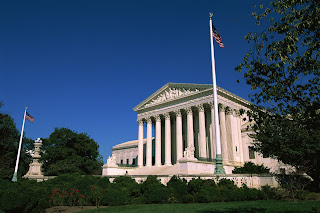You perform a service for which you are entitled to be compensated. In fact, you need to get paid if you are going to stay in business. Nothing complicated about it. Still, it surprises me how willing clients are to stop paying their bills, and yet they continue to expect uninterrupted legal services. In other instances, you as the lawyer may find yourself in a case that has so much momentum going that thousands of dollars of work can been done before you even know it. Then you send out your bill, and the client cannot or will not pay it. One of the components of successfully operating your law practice as a business is to make it easier for your clients to pay you. Accepting credit cards payments is a great option in this regard.
For the uninitiated here is a primer on credit cards. If you want your clients to be able to pay you with credit cards, you must first identify a credit card servicing company, and then open a "merchant account" with that company. The merchant account is the vehicle by which you enter your client's credit card number. Your merchant account company then processes the transaction, secures the approval for the charge, and deposits the money into the bank account that you have designated.
Your merchant account company makes its money by charging you a "merchant fee" on each transaction. The fee is usually a percentage of the value of the entire transaction, for example, 1%, 2%, 3%. Some vendors also charge a monthly fee.Technology has streamlined the task of processing credit card payments. Combined with competition in the marketplace, merchants fees have come way down.
The bookkeeping burden at your law office end is also becoming more efficient. Many credit card merchants have software that integrates with your bookkeeping or practice management software, to post the transactions right into your books. We utilize Quickbooks Pro for our bookkeeping. Intuit, the publisher of Quickbooks, is also our merchant account provider. We bought a $50 credit card reader from Intuit. When we process credit card transactions we simply plug the reader into the USB port on the computer that hosts our Quickbooks, and we swipe the card. The software communicates online with Intuit's servers, processes the transaction, approves it, posts the fee we receive to our designated Quickbooks account, posts the appropriate merchant fee for the transaction, electronically credits/deposits the money into our bank account, and Bam!, we are paid and done.
Some lawyers are reticent to accept credit card payments because of the merchant fees. I find this hesitation intriguing. As lawyers we readily pay referral fees (sometimes 20% of the fees earned in the case of referral services). Yet some won't pay 1% to get paid themselves. 1% of $1000 is $10. I would sure rather have $990 instead of $0!
If collections are an issue in your practice, and you are not accepting credit cards, you are costing yourself money. Make it easier for your practice to make money. Consider credit cards. Go to your favorite internet search engine, type in "credit card merchant account," and behold the wealth of options available to you!
One caveat: Some states are still in the process of developing rules of professional responsibility regarding credit card payments. Make sure you check the appropriate rules and authorities for your home state.
Please be sure to visit www.hardinglaw.com, the website for the law firm of Harding & Associates, for more information on California family law.
A blog space for technology, marketing, and practice management musings directed at the family law lawyer.
Subscribe to:
Post Comments (Atom)
Solo nets Supreme Court win!
I know this has nothing to do with technology, but I think it is pretty cool. Andrew Simpson is a sole practitioner in the U.S. Virgin Is...

-
One of my favorites shows to watch on television as a kid was Hogan's Heros . My how it amused me as time and again the misfit prisoners...
-
Think of traditional law firm letterhead... Black on white. Solid blocks of text. Engraved printing. Rich, traditional, and strong. Not...
-
We have used Amicus Attorney for years. I have always loved the awesome graphics of the program, and the potential it carries. I have alwa...


No comments:
Post a Comment